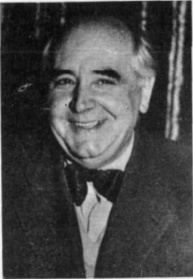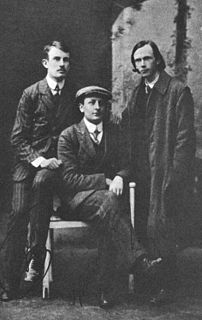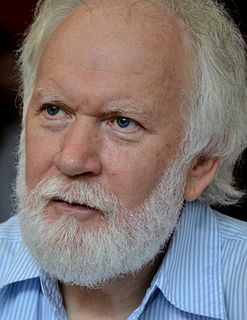 W
WMilena Benini was a Croatian science fiction writer and translator. She received several prizes for her work, including 6 times an SFERA Award and multiple times an Artefakt Award.
 W
WTituš Brezovački was a Croatian playwright, satirist and poet.
 W
WFranjo Bučar was a Croatian writer and sports popularizer. He is considered to be the father of Croatian sport and olympism.
 W
WAugust Cesarec was a Croatian writer and left-wing politician.
 W
WDimitrios Dimitriou was a Greek Croatian poet, dramatist, short story writer and literary critic. One of the most learned people of his time, he played a major role in the movement for the national awakening of the Croatian nation as part of what he and his close friend and colleague Ljudevit Gaj called the Illyrian people by imposing the Croatian language in the local literacy and with the creation of the Croatian National Theatre in Zagreb. His political activism for a Croatian national revival dealt through his participation in many patriotic pamphlets, most notably the Narodne novine and Hrvatski Sokol among many others.
 W
WLjiljana Filipović is a Croatian author and philosopher.
 W
WAnna Goldmann Hirschler-Forstenheim was an Austrian writer and poet.
 W
WBranko Gavella was a Croatian theatre director, critic and essayist.
 W
WStanka Gjurić is a Croatian poet, essayist, actress, filmmaker and ex model. She is a member of the Croatian Writers' Association and Croatian Academy of Science and Art in Diaspora. She has also acted in seven feature films.
 W
WAlbert Goldstein was significant Croatian Jewish intellectual, writer, publisher, poet and translator.
 W
WAnđelko Habazin was a Croatian philosopher.
 W
WZlatko Hasanbegović is a Croatian far-right politician and historian who has served as a member of the Croatian Parliament since 2016. He served as Minister of Culture in the Cabinet of Tihomir Orešković from 22 January to 19 October 2016. Hasanbegović is also a member of the Zagreb Assembly and one of the founders of the Independents for Croatia party.
 W
WHrvoje Hitrec is a Croatian writer and politician. He is notable for his works for children and youth, most famous of his works being Smogovci, but he also wrote novels, film and TV scripts, dramas. He received several notable Croatian literary awards: "Ksaver Šandor Gjalski," "Ivana Brlić Mažuranić" and "Grigor Vitez."
 W
WDubravko Horvatić was a Croatian novelist, poet and essayist.
 W
WMilan Kangrga was a Croatian and Yugoslav philosopher who was one of the leading thinkers in the Praxis School of thought which originated in the 1960s in the Socialist Federal Republic of Yugoslavia.
 W
WMiroslav Krleža was a Croatian writer and a prominent figure in cultural life of both Yugoslav states, the Kingdom (1918–1941) and the Socialist Republic. A one time Vice President and General Secretary of the Yugoslav Academy of Sciences and Arts (JAZU), he has often been proclaimed the greatest Croatian writer of the 20th century and beyond.
Željko Malnar was a Croatian maverick traveller, writer and a fringe television celebrity, best known for his own weekly show Nightmare Stage and his satirical micronation the Republic of Peščenica.
 W
WDejan Medaković was a Serbian art historian, writer and academician. Medaković had served as President of the Serbian Academy of Sciences and Arts from 1998 to 2003, as Dean of the University of Belgrade Faculty of Philosophy (1971–1973), and was a member of the Matica srpska as well as other scholarly associations.
 W
WAntun Mihanović was a Croatian poet and lyricist, most famous for writing the national anthem of Croatia, which was put to music by Josif Runjanin and adopted in 1891. Klanjec, his birthplace, holds a monument to him and a gallery of his works.
 W
WŽarko Petan was a Slovenian writer, essayist, screenwriter, and theatre and film director. He is best known as a writer of aphorisms.
 W
WIvo Pilar was a Croatian historian, politician and lawyer. His book The South Slav Question is a work on the South Slav geopolitical issues.
 W
WAugust Ivan Nepomuk Eduard Šenoa was a novelist. Born to an ethnic German and Slovak family, Šenoa became a key figure in the development of an independent literary tradition in the Croatian language and shaping the emergence of the urban Croatian identity of Zagreb and its surroundings at a time when Austrian control was weaning. He was a literary transitional figure, who helped bring Croatian literature from Romanticism to Realism and introduced the historical novel to Croatia. He wrote more than ten novels, among which the most notable are: Zlatarovo zlato, Čuvaj se senjske ruke, Seljačka buna, and Diogenes (1878).
 W
WSlobodan Šnajder is a Croatian writer and publicist.
 W
WTomislav Sunić, sometimes known as Tom Sunic, is a Croatian-American translator, far-right activist and a former professor. His views are often cited as part of the European New Right. The Southern Poverty Law Center describes Sunić as having white nationalist opinions.
 W
WDarko Tanasković is a Serbian university professor of Oriental studies, writer, translator, academic and diplomat. Tanasković was the Ambassador of Serbia to Turkey, Azerbaijan, Vatican City, Sovereign Military Order of Malta and UNESCO. He authored over 600 scientific works and articles.
 W
WVladimir Vidrić aka Vidra (April 20, 1875 – September 29, 1909) was a Croatian poet, and is considered one of the major figures of Croatian secessionist poetry.
 W
WLjubo Wiesner was a Croatian poet. He was a follower of Antun Gustav Matoš's work.
 W
WZdravko Zupan was a Yugoslav comic book creator and historian.